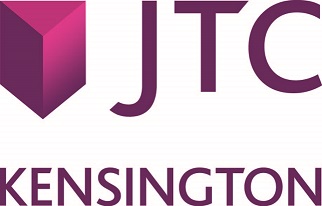The New Zealand Foreign Trust is an entity which provides non-resident persons an opportunity to utilise the economic and political stability and trusted reputation of New Zealand as a base to manage their assets, without the imposition of New Zealand tax on non-New Zealand sourced income.
NEW ZEALAND’S FOREIGN TRUST TAXATION REGIME
In order to utilise the New Zealand Foreign Trust regime, no person who makes a settlement on the Trust (a “settlor”) may be a New Zealand tax resident. Under New Zealand tax law, a settlor includes any person who transfers value to the trust and also includes someone who provides financial assistance to the trust or for the benefit of the trust with an obligation to pay on demand, and the right to demand is not exercised or is deferred.
TAXATION OF DISTRIBUTIONS
Foreign (non-New Zealand) sourced income will be exempt income for the New Zealand based trustee. Distributions of income from the Foreign Trust will generally be taxable if received by New Zealand resident beneficiaries, except to the extent that they represent trust corpus or capital gains derived from transactions with third parties. Distributions to non-residents will only be taxable to the extent they comprise New Zealand sourced income. New Zealand sourced income will need to be carefully managed to ensure that there is no double tax imposed, once when the income is derived and later when that income is distributed.
The New Zealand Foreign Trust is usually established as a fully discretionary trust, allowing distributions of income and/or capital of the trust fund to any of the specified discretionary beneficiaries, which can include the settlor, allowing a level of continued control and access to the trust fund during the settlor’s lifetime. Powers of appointment and removal of trustees can be retained by the settlor or a separate protector.
REGISTRATION OF NEW ZEALAND FOREIGN TRUST
In April 2016, changes were recommended following the Government’s Inquiry into Foreign Trust Disclosure Rules. These changes are important to ensure that New Zealand’s reputation as having best practice in contributing to global exchange of information is maintained. The amendments came into effect on 21 February 2017 (“date of Royal assent”).
For foreign trusts in existence as at date of Royal assent, the resident trustee must apply for registration of the foreign trust by 30 June 2017 with the Commissioner of Inland Revenue New Zealand. Besides registration, the trustee needs to disclose information required as part of registration, filing annual disclosure return and payment of fees.
Note: If the trustee does not provide any of the information required, it may affect the eligibility for exemption on tax for foreign-sourced income derived by the trustee.
IMPACT ON REGISTRATION OF NEW ZEALAND FOREIGN TRUST
- Tax exemption on foreign sourced income derived by a NZ resident trustee remains intact. In order to be eligible for the foreign-sourced income exemption following the changes, a foreign trust must be registered with the Commissioner of Inland Revenue.
- Details submitted will NOT be public and the information will only be accessible by the Department of Internal Affairs and New Zealand Police.
- Details required are no more onerous than those retained by any prudent trustee, and required anyway under Common Reporting Standards.
ADVANTAGES OF NEW ZEALAND FOREIGN TRUST
- The Trust Deed can create a fully discretionary trust, with the ability to benefit the settlor and his or her family in any way deemed appropriate by the trustees or can otherwise set the beneficiaries, and the proportion in which they will benefit.
- Ability for the settlor to retain a degree of control over trust assets by:
- being appointed a trustee or co-director of the corporate trustee; and/or
- retaining the power of appointment and removal of trustees during his or her lifetime - Use of trustee located in a stable and respected jurisdiction
- No New Zealand taxation on non-New Zealand sourced income
- No New Zealand taxation on distributions of non-New Zealand sourced income to non-New Zealand resident beneficiaries
- Seamless succession by nominated beneficiaries to the investment assets on the settlor’s death
- No need to prove probate in the New Zealand courts
- The settlor can revoke the arrangement at any time
- The arrangement can be terminated and re-established at any time during the settlor’s lifetime
- The arrangement can also apply on the settlor’s incapacity
CONCLUSION
The New Zealand Foreign Trust is a useful estate planning tool, allowing for continuity of ownership following the death of the settlor. The combined asset protection benefits of trust ownership and the flexibility to distribute income and capital to those beneficiaries who require the funds, including the settlor, together with the tax exemption on foreign sourced income, make the New Zealand Foreign Trust an attractive holding structure for many global clients.
New Zealand has done well in introducing reasonable disclosure requirements and maintaining its favourable tax treatment of foreign trusts. More importantly, these measures see New Zealand retaining its status as a trustworthy and desirable planning jurisdiction for high net worth families.
